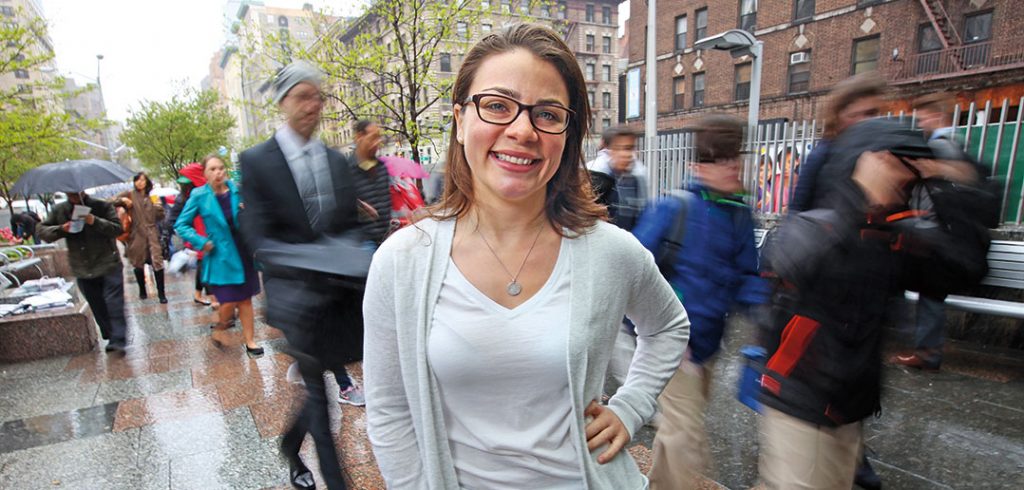A former Jesuit Volunteer aims to reduce health disparities
Soon after Brittney Cavaliere began volunteering at Joseph’s House in Washington, D.C., James Hardy arrived.
“He was a pain, he really was,” Cavaliere says with a laugh, recalling how the 60-something-year-old acted when he first got to Joseph’s House, an organization that offers shelter and end-of-life care for homeless men and women with HIV and cancer.
As Cavaliere describes it in The Messengers, a documentary film by Pulitzer Prize-winning photographer Lucian Perkins, Hardy “wanted help, but he was too proud to ask.”
That changed when his cancer almost killed him.
By the time Hardy had bounced back, he and Cavaliere had developed a deep friendship that was defining for both of them, she says. “I think we were learning to be vulnerable together.”
Joseph’s House was Cavaliere’s second assignment as a member of the Jesuit Volunteer Corps, which places volunteers in communities tackling challenges like homelessness, hunger, mental illness, and poverty. Though she had worked with similar populations before, it was a particularly emotional time for Cavaliere. Even after leaving, she spoke with Hardy every day until he passed away. A picture he gave her of himself—“I want for you always to remember me like that,” he told her—still hangs on her bedroom wall.
“My time at Joseph’s House helped me better understand how to be a party in a relationship,” Cavaliere says, “how to be my best self, how to be vulnerable, how to love.”
It also helped Cavaliere confirm that social work was not the best route for her. She went on to explore a research career in D.C. before returning to New York to pursue a master’s degree in public health at Columbia University. Since college, Cavaliere had focused on supporting those affected by HIV/AIDS, but in graduate school she expanded her focus to health policy and practice.
“If I learned anything from my time at Joseph’s House, it’s that people shouldn’t be dying just because they’re black or poor,” Cavaliere says. “HIV shouldn’t be affecting different populations disproportionately because they’re marginalized, because their voices aren’t heard by the government or by policymakers.”
Having graduated this spring, she hopes to fight for health equity for all through community organizing and advocacy work.

